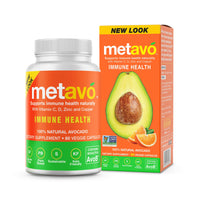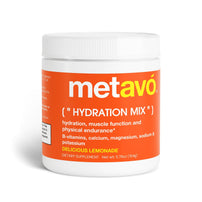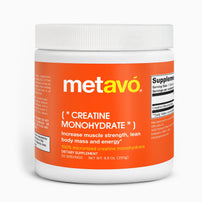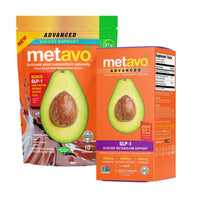Top 5 signs of slow metabolism
Metabolism is the rate at which your body burns calories. If it's slow, you'll be more likely to gain weight and less likely to lose it. You may also find yourself hungry all the time, craving sugary snacks and junk food, with thinning hair and broken nails. These signs can often be attributed to a slow metabolism—and they're not something you want to live with if they're affecting your health!
If you've been trying to lose weight for more than a few weeks and it hasn't come off, there are two possibilities: Either your metabolism is too slow or you're not exercising enough.
If you're trying to lose weight but aren't seeing results after a few weeks, chances are that your metabolism is the culprit. You may want to try increasing your daily caloric intake by 500 calories per day so that your body can start burning fat more efficiently and speed up its metabolic rate. The best way to do this is by adding foods that increase calorie burn into your regular diet (such as spices). Another option is increasing physical activity by exercising regularly. This can help speed up the rate at which your body processes food into energy, thereby raising its metabolic output and helping with weight loss goals overall!
Or your weight fluctuates by 5-15 pounds each month.
If your body is naturally inclined toward storing fat rather than burning it off, then fluctuations in weight may be inevitable—especially if they happen with little notice or warning. But if these fluctuations are happening consistently over time and without any major changes to diet or exercise habits, then this might be another sign that something isn't right with your metabolic rate.*
If you eat a lot of carbohydrates, it takes a long time for your body to digest them and convert them into energy. This is why you may feel sluggish after eating bread or pasta. You can try eating more vegetables and fruits instead, which will give you an immediate source of energy without the need for digestion.
Additionally, adding more protein to your diet can help increase the speed at which your body burns calories because it's a very high-energy food. Some good sources include lean meat (like chicken breasts), fish like salmon or tuna with no added sauces on top, eggs (without butter), tofu with no sauce added on top if possible (look for "water packed" varieties). You'll also want to make sure that there aren't too many carbs in whatever form they come in when buying any of these items - look carefully!
The more you eat, the more calories you burn. If a slow metabolism is making it difficult for you to lose weight, then it's possible that your body just isn't burning as many calories as it should be—and this can make you feel like there's a bottomless pit in your stomach that needs filling every few hours (or sooner).
4. Your hair is thinning or breaking off.
If you're losing hair and it's not related to your diet or exercise routine, there could be another reason for the thinning locks. A slow metabolism can cause hair loss because of a deficiency in nutrients needed for healthy hair growth. Anemia, hypothyroidism, and other conditions that affect your body's ability to produce enough energy can also contribute to excessive hair loss.
If you have been experiencing hair loss for six months or more, talk with your doctor about possible causes and treatments. They may recommend medication to help boost your metabolism or surgery if they find something physically wrong with the way certain glands work in your body (such as an underactive thyroid). Of course there are natural alternatives now with breakthrough discoveries like the AVOB bioactive found in Metavo.
5. You crave sugary snacks and junk food.
Cravings for sugary snacks and junk food can be caused by a variety of factors, including psychological. If you’re going through a stressful time in your life, or you have an addictive personality, it's common to turn to these foods as an outlet.
But it's important to remember that the type of fuel your body needs is not found in unhealthy foods—it comes from healthy sources like lean proteins and plenty of fruits and vegetables. If you're continually craving junk food, consider seeing a nutritionist for advice on how to create a healthier eating plan that will satisfy your cravings without compromising your metabolism or health.
The key to a healthy metabolism is a healthy diet and regular exercise.
The key to a healthy metabolism is a healthy diet and regular exercise. As many studies have shown, eating too many processed foods and not getting enough exercise can lead to weight gain. A person with a slow metabolism may be able to lose weight by making some changes in his or her diet and exercise routine.
For example, if you're not used to exercising regularly or have never been active at all, it's important that you start slowly so that your body can adapt to the new activity level. Start by walking for 15 minutes each day until you feel comfortable with this amount of movement before moving up from there. Also remember that it takes time—as much as six weeks—to see results from any workout program!
Eating more fruits and vegetables also helps boost your metabolic rate by providing more vitamins, minerals and fiber in addition to helping control blood sugar levels which helps prevent diabetes type 2 . Some other ways of keeping your metabolism running efficiently include cutting back on alcohol consumption (which slows down digestion), reducing stress through regular meditation sessions or yoga classes once per week etc. The stress hormone called Cortisol is a powerful culprit that you want to keep at bay and can lead to added weight gain. It can increase your cravings for sweets, salty and fatty foods.
To activate your dysfunctional metabolism join us to #stopdysfunctionalmetabolism with Metavo
You’re not alone. Many people suffer from a slow metabolism and don’t realize it until they begin to gain weight or feel tired all the time. It doesn’t have to be this way! Metavo is an all-natural cellular-level metabolism activator that triggers your mitochondria to finally process or burn fats and carbohydrates properly.
Metavo is a breakthrough metabolism activator. It contains AVOB, a bioactive compound shown in scientific research to balance blood sugar and activate the metabolism—all without any stimulants or chemicals.
Metavo is all natural and Non-GMO Project Verified, from select avocados sustainably sourced in South America.
Metavo is made from all natural ingredients, so there are no side effects when taking this supplement.* The pills come in convenient vegetable capsules that allow you to take them on-the-go easily as part of an active lifestyle – whether at work or play! Plus, you can try the all-natural creamy powder mix in your favorite smoothie!
Conclusion
Don’t let slow metabolism get in your way. If you want to live a healthy lifestyle, it’s important not just to eat well but also to exercise and manage stress. Try these tips to boost your metabolism:
- Exercise daily
- Eat healthy foods with fiber, protein, and healthy fats
- Reduce stress through meditation, walks or yoga
- Take your Metavo daily
Like these tips? Sign up to our newsletter and get 20% off your first order of Metavo.
























Leave a comment
This site is protected by hCaptcha and the hCaptcha Privacy Policy and Terms of Service apply.